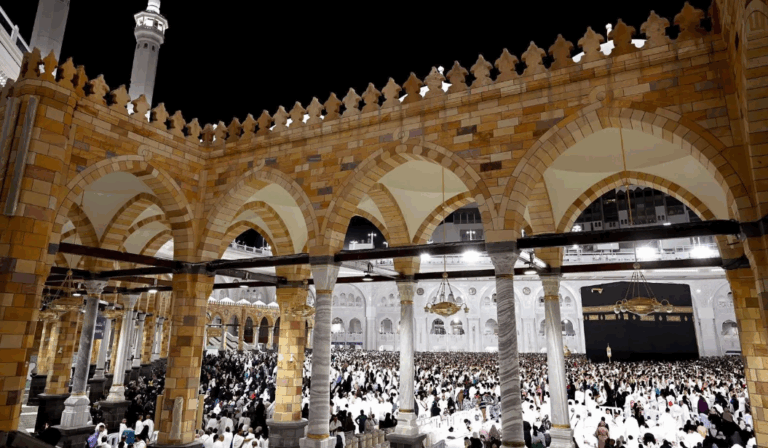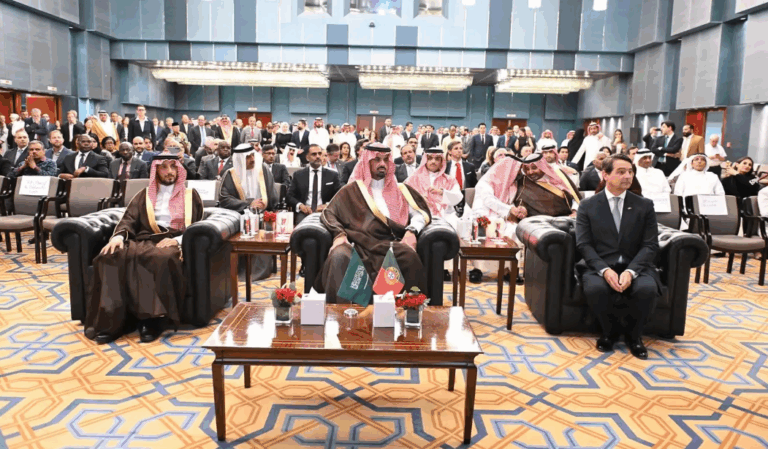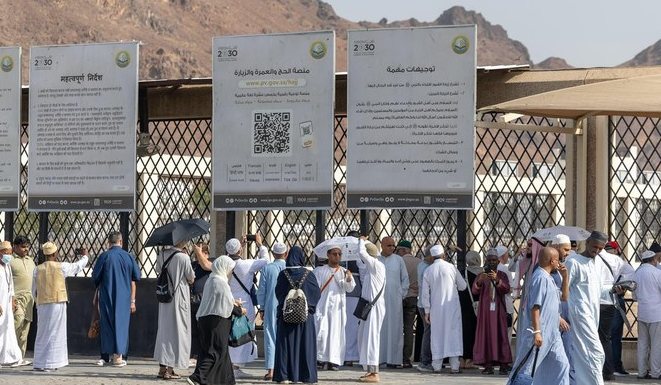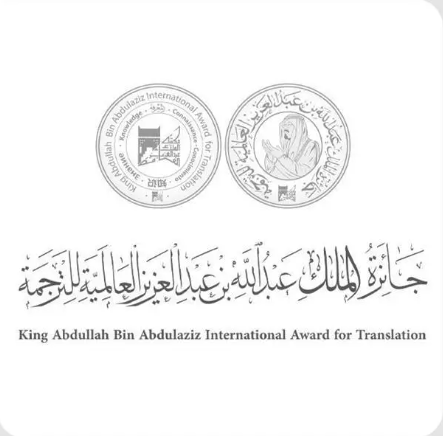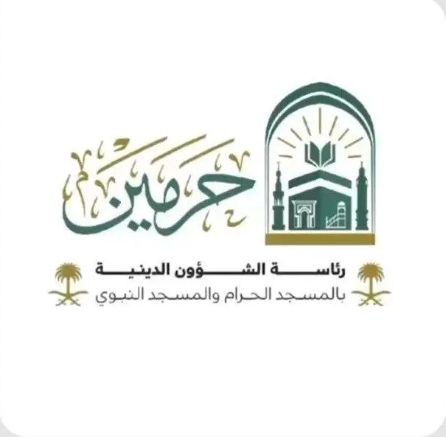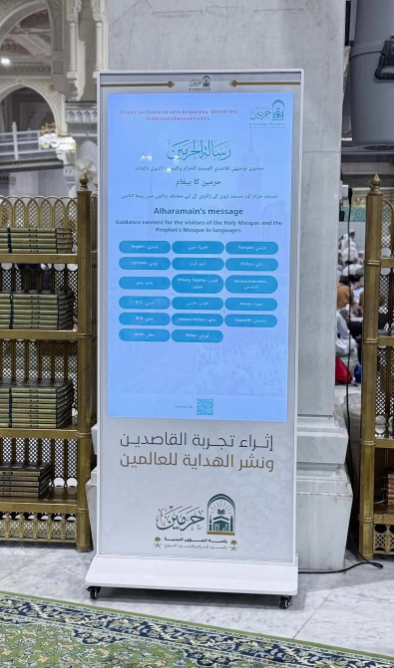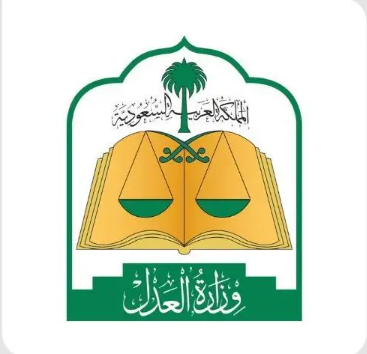**Headline:** “Dr. Al-Theeb Unlocks Arabia’s Scriptural Past”
**Intro:**
At the 2024 Riyadh International Book Fair, historian Dr. Suleiman Al-Theeb illuminated ancient Arabic inscriptions as cornerstones of the Arabian Peninsula’s identity. Tracing migrations, tribal roots, and linguistic evolution, he highlighted a 1300 BCE Thamudic inscription—misidentified for decades—as proof of the region’s enduring cultural legacy.
**Factbox (50 words):**
– **Event:** Riyadh International Book Fair 2024 (Sep 26 – Oct 5).
– **Expert:** Dr. Al-Theeb, King Saud University professor, author.
– **Key Insight:** Oldest Arab inscription (1300 BCE) found in Palestine’s Lachish.
– **Legacy:** Arabs shaped the Peninsula’s identity since Assyrian-era tribal designations.
– **Contributions:** 20+ books on heritage, expeditions, and ancient scripts.
**Title:** Dr. Suleiman Al-Theeb Illuminates Arabia’s Ancient Legacy at Riyadh International Book Fair
**Introduction**
The 2024 Riyadh International Book Fair, held from September 26 to October 5, became a focal point for cultural discourse as Dr. Suleiman Al-Theeb, a preeminent Saudi historian, took center stage. His panel discussion, *“Ancient Arabic Writings: Windows into Arabia’s Soul,”* captivated audiences with revelations about the region’s millennia-old heritage, emphasizing how ancient texts and migrations forged the Arabian identity.
—
### **Unlocking the Secrets of Ancient Arabic Scripts**
Dr. Al-Theeb’s session delved into the profound significance of inscriptions discovered across the Arabian Peninsula and beyond. Key highlights included:
– **Origins of the Term “Arab”:** Tracing its first documented use to Assyrian records (8th–9th century BCE), where it described tribal groups in the region.
– **Migration and Civilization:** How movements from central Arabia led to the establishment of thriving kingdoms in Mesopotamia, the Levant, and Egypt.
– **The Lachish Inscription:** A groundbreaking artifact found in Palestine (dated 1300 BCE) initially mistaken for Phoenician, now recognized as a blend of South Arabian and Thamudic scripts—the oldest known Arab inscription.
*“These writings are not mere relics,”* Dr. Al-Theeb asserted. *“They are living testaments to the unbroken thread of Arab identity, language, and societal values.”*
—
### **The Arabian Peninsula: A Cradle of Civilization**
Dr. Al-Theeb dismantled misconceptions of Arabia as a transient crossroads, arguing instead for its role as a *permanent cultural nucleus*. He emphasized:
– **Enduring Arab Presence:** While other groups settled temporarily, Arab tribes consistently shaped the region’s demographic and cultural fabric.
– **Linguistic Evolution:** How ancient scripts like Thamudic and South Arabian reflect early linguistic diversity, later unifying under Classical Arabic.
– **Trade and Exchange:** Inscriptions along trade routes reveal interconnectedness with neighboring civilizations, from the Nile to the Euphrates.
—
### **Dr. Al-Theeb: A Lifetime Dedicated to Heritage**
A professor at King Saud University and veteran archaeologist, Dr. Al-Theeb has authored seminal works on Arabian epigraphy and tribal history. His contributions include:
– **Field Research:** Leading excavations that uncovered pivotal inscriptions.
– **Academic Publications:** Over 20 books and studies bridging ancient texts and modern understanding.
– **Cultural Advocacy:** Promoting heritage preservation as a cornerstone of national identity.
—
### **Why This Matters Today**
The discussion underscored the urgency of safeguarding Arabia’s archaeological treasures. Dr. Al-Theeb noted, *“To neglect these inscriptions is to erase chapters of human history.”* The Book Fair’s role in fostering such dialogue highlights Saudi Arabia’s commitment to cultural diplomacy and education.
—
**Conclusion**
Dr. Suleiman Al-Theeb’s insights at the Riyadh International Book Fair transcended academia, offering a vivid reminder of the Arabian Peninsula’s indelible mark on global civilization. As the Kingdom continues to champion its heritage, events like these ensure that ancient voices remain audible in the modern world—inspiring both pride and curiosity.
**Call to Action**
Missed the panel? Explore Dr. Al-Theeb’s works through the Literature, Publishing, and Translation Commission’s digital archive, or mark your calendar for next year’s Riyadh International Book Fair!
—
**SEO Tags:** Ancient Arabic inscriptions, Saudi heritage, Riyadh Book Fair 2024, Dr. Suleiman Al-Theeb, Arabian civilization, Thamudic script, Lachish inscription
**Suggested Media:**
– Featured image: Dr. Al-Theeb speaking at the panel (placeholder: “RIYADH_BOOK_FAIR_AL-THEEB.jpg”)
– Infographic: Timeline of ancient Arabian scripts
– Embed video snippet: Highlights from the discussion (if available)
This structure balances depth with readability, ideal for WordPress engagement. Let me know if you need adjustments!
**15 FAQs on Dr. Suleiman Al-Theeb’s Panel at the Riyadh International Book Fair 2024**
1. **What was the central theme of Dr. Suleiman Al-Theeb’s panel discussion at the Riyadh International Book Fair?**
The discussion, titled “Ancient Arabic Writings,” focused on the Arabian Peninsula’s cultural heritage, exploring its history, geography, and the role of ancient inscriptions in understanding Arab identity.
2. **When and where was the 2024 Riyadh International Book Fair held?**
The event took place in Riyadh from September 26 to October 5, 2024, organized by the Literature, Publishing, and Translation Commission.
3. **Why are ancient Arab inscriptions significant according to Dr. Al-Theeb?**
He emphasized their role as historical testimonies, offering insights into the region’s identity, migrations, and civilizational contributions over millennia.
4. **How did Dr. Al-Theeb trace the origin of the term “Arab”?**
He noted it first described tribal groups during the Assyrian era (8th–9th century BCE) and highlighted Arabs as the Peninsula’s consistent inhabitants.
5. **What migration patterns did Dr. Al-Theeb link to early Arab settlements?**
He detailed migrations from central Arabia to Mesopotamia, Greater Syria, and Egypt, where tribes established influential kingdoms.
6. **What is the Thamudic inscription in Lachish, and why is it notable?**
Dating to 1300 BCE, it’s the oldest known Arab inscription, initially misidentified as Phoenician. It combines South Arabian script and Thamudic letters.
7. **How has Dr. Al-Theeb contributed to Saudi historical research?**
Through archaeological expeditions, scholarly publications, and analyses of inscriptions, he has advanced understanding of ancient Arabian civilizations.
8. **What connection did Dr. Al-Theeb draw between language and Arab identity?**
He stressed that language reflects social structures and identity, with ancient writings preserving cultural continuity and regional influences.
9. **Which external regions were influenced by early Arab migrations?**
Migrations led to settlements in Mesopotamia (modern Iraq), Greater Syria (Levant), and Egypt, fostering cross-regional cultural exchange.
10. **How did the Assyrian era shape Arab identity?**
It marked the first recorded use of “Arab” to describe tribes, anchoring the Peninsula’s demographic and cultural history.
11. **What modern relevance does Dr. Al-Theeb’s work hold?**
It underscores the importance of preserving heritage and informs contemporary debates on identity, migration, and regional history.
12. **What are some notable publications by Dr. Al-Theeb?**
He has authored Arabic-language books and studies on heritage, historical research, and Arabian civilizations, though specific titles aren’t listed.
13. **Why was the Lachish inscription initially misidentified, and how was this corrected?**
Its script resembled Phoenician, but later analysis revealed its blend of South Arabian and Thamudic elements, clarifying its Arab origin.
14. **How does the Riyadh Book Fair promote cultural dialogue?**
By hosting scholars like Dr. Al-Theeb, it fosters discussions on heritage, literature, and history, attracting global audiences.
15. **What future research did Dr. Al-Theeb imply is needed?**
While not explicitly stated, his emphasis on inscriptions’ value suggests further study of linguistic evolution and undocumented migrations.
**CTA (Llamada a la Acción):**
¿Te interesa profundizar en la riqueza histórica de la península arábiga? Descubre las obras del Dr. Suleiman Al-Theeb, disponibles en librerías y plataformas digitales, y mantente atento a la próxima edición de la Feria Internacional del Libro de Riad para vivir experiencias culturales únicas. ¡Súmate a la conversación y comparte tus reflexiones usando el hashtag #HerenciaÁrabe en redes sociales!
**Conclusión:**
La participación del Dr. Al-Theeb en la Feria Internacional del Libro de Riad no solo revitalizó el diálogo sobre las raíces históricas de la región, sino que también reforzó la importancia de preservar y estudiar las inscripciones antiguas como puentes hacia nuestra identidad colectiva. Su labor académica, combinada con eventos culturales de esta magnitud, asegura que el legado de la península arábiga siga iluminando a las generaciones presentes y futuras. En un mundo que avanza rápidamente, recordar estas conexiones con el pasado es un acto de resistencia cultural y un tributo a quienes moldearon nuestra historia.
**Agradecimiento:**
Agradecemos a la Comisión de Literatura, Publicaciones y Traducción por organizar un evento que celebra el conocimiento y la diversidad cultural. Un reconocimiento especial al Dr. Al-Theeb por compartir su expertise con tanta pasión, y al público que, con su entusiasmo, convierte estas iniciativas en espacios vivos de aprendizaje. ¡Hasta la próxima edición, donde seguiremos tejiendo historias juntos!
—
*¿Quieres saber más sobre temas culturales e históricos? Suscríbete a nuestro boletín para recibir actualizaciones exclusivas y contenido destacado directamente en tu correo.* 📚✨

